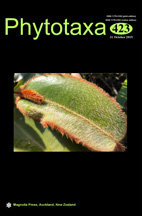Abstract
Disperis was established by Swartz (1800: 218), and there is little doubt that the genus is monophyletic in morphological and molecular (Waterman et al. 2009) terms. Kurzweil & Manning (2005) proposed two subgenera, subgenus Dryorkis (Thouars) Kurzweil & Manning (2005: 172), comprising the species in the tropics and subtropics of Africa, Madagascar and Asia, and subgenus Disperis with mostly the South African taxa. Disperis currently includes 80 species distributed in sub-Saharan Africa, Madagascar and the adjacent islands of the Indian Ocean (la Croix et al. 2002, Manning & Kurzweil 2005, Govaerts, 2019) and one widespread species in tropical Asia (Kurzweil & Manning 2005). The highest diversity is found in the humid tropics of Africa, the Cape Floristic Region and Madagascar, with little species overlap between these regions (Kuzrweil & Manning, 2005). So far, four species have been confirmed for the Mascarenes (la Croix et al. 2002). However, the presence of Disperis similis Schlechter (1924: 111) is doubtful because no picture or herbarium specimen documenting its presence on the Mascarenes is available. All four species also occur on Madagascar. Here, we report the presence of a fifth species of this genus for the Mascarenes.

